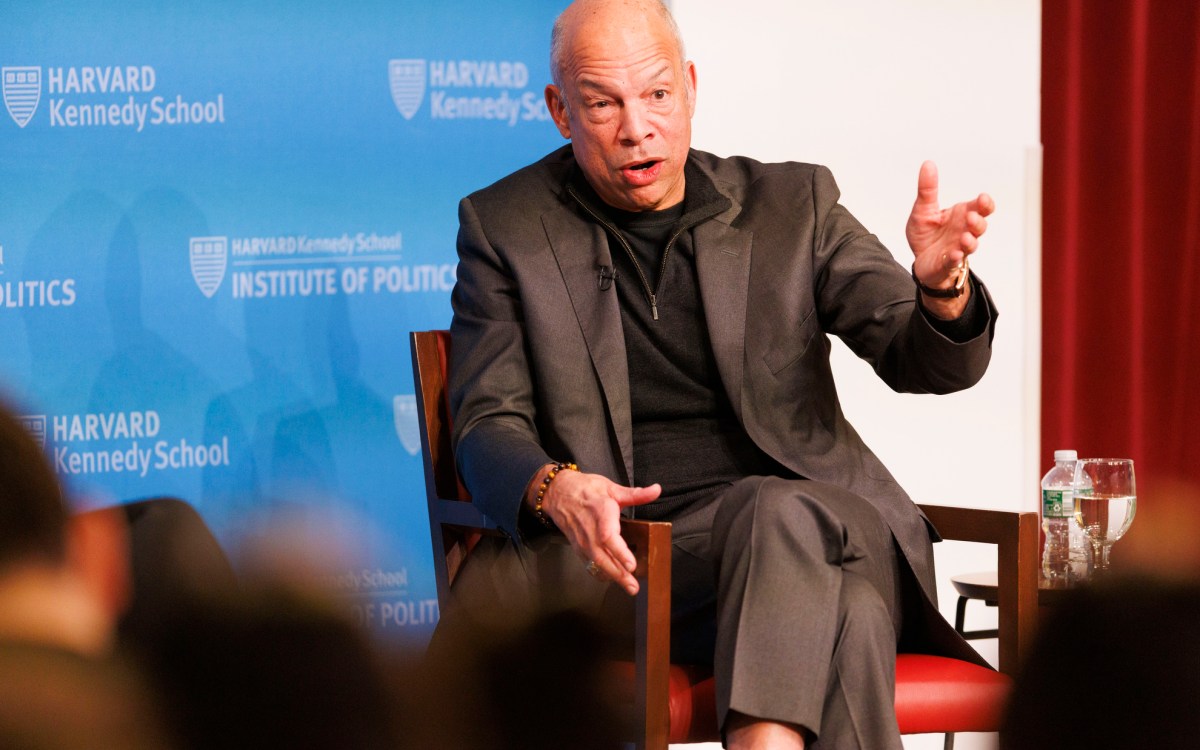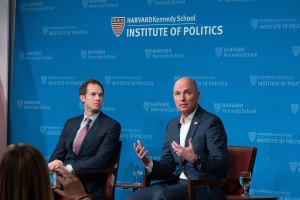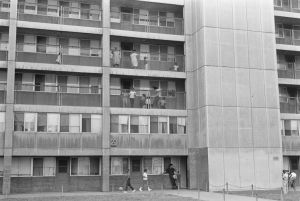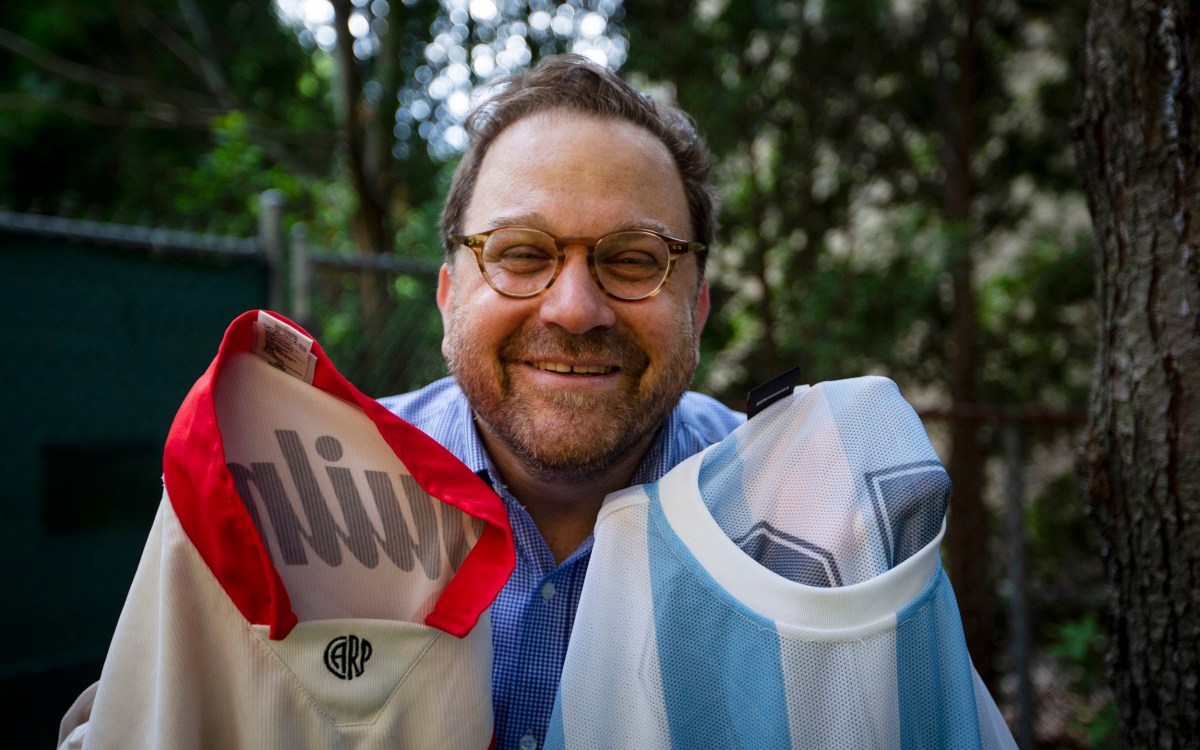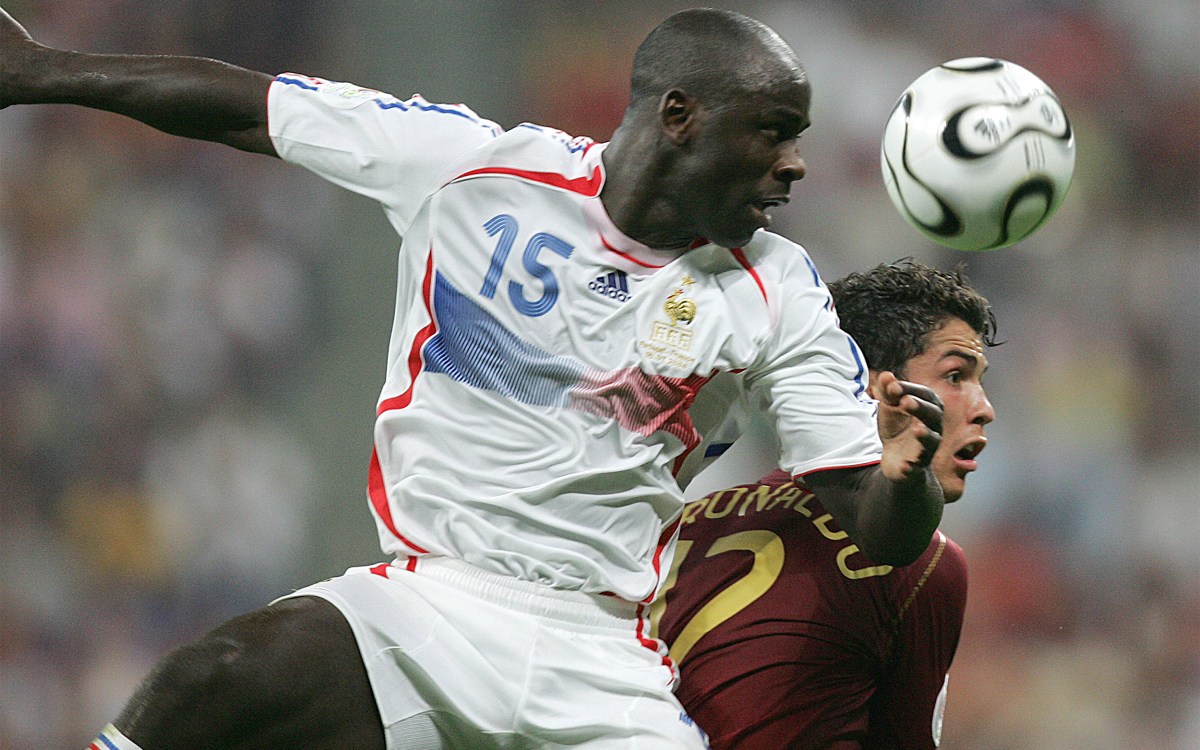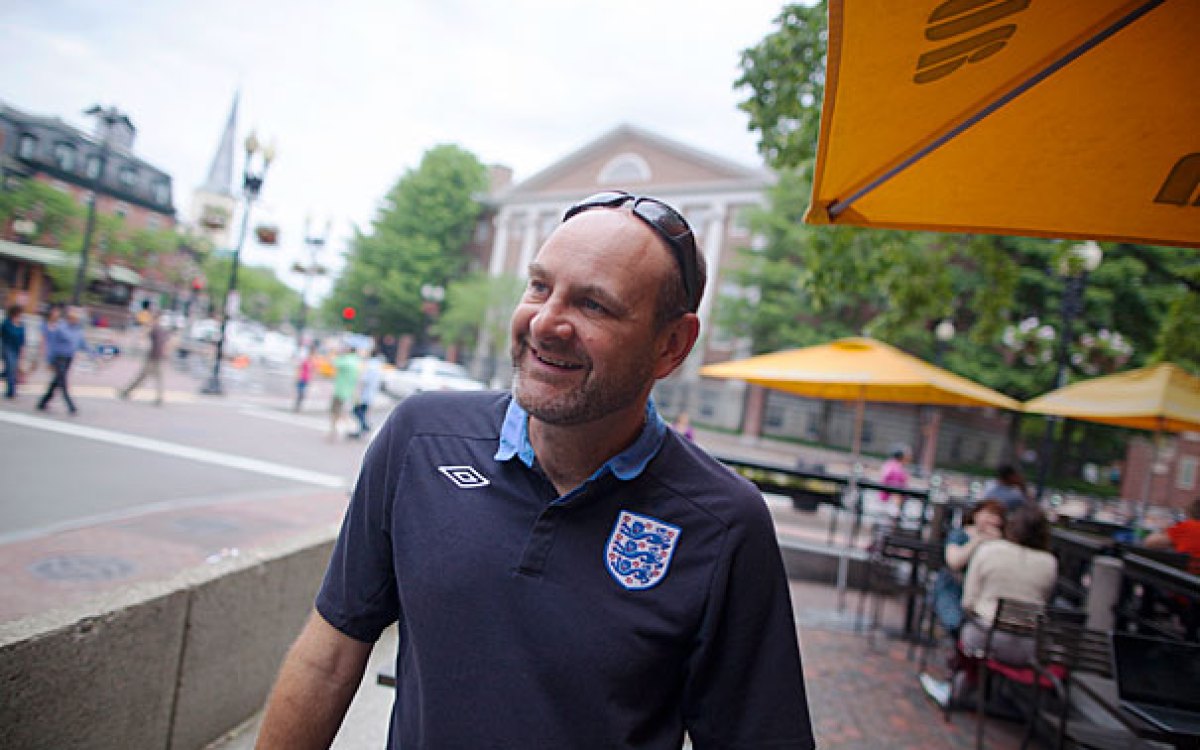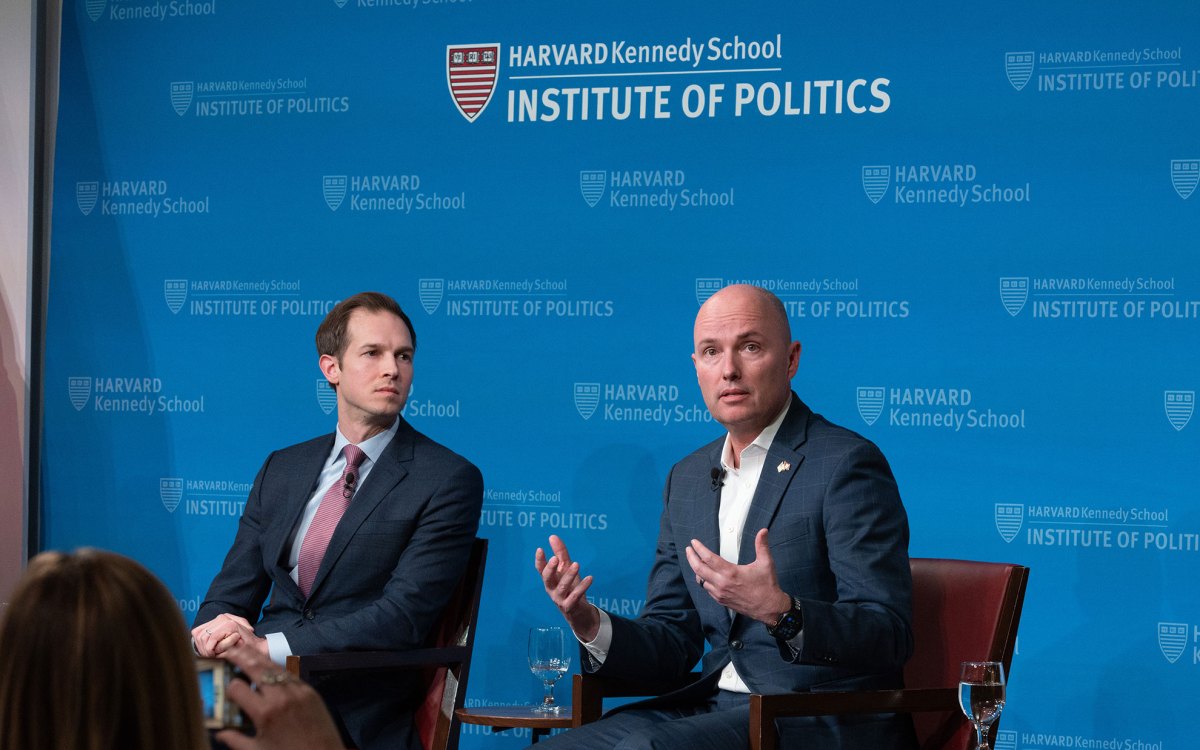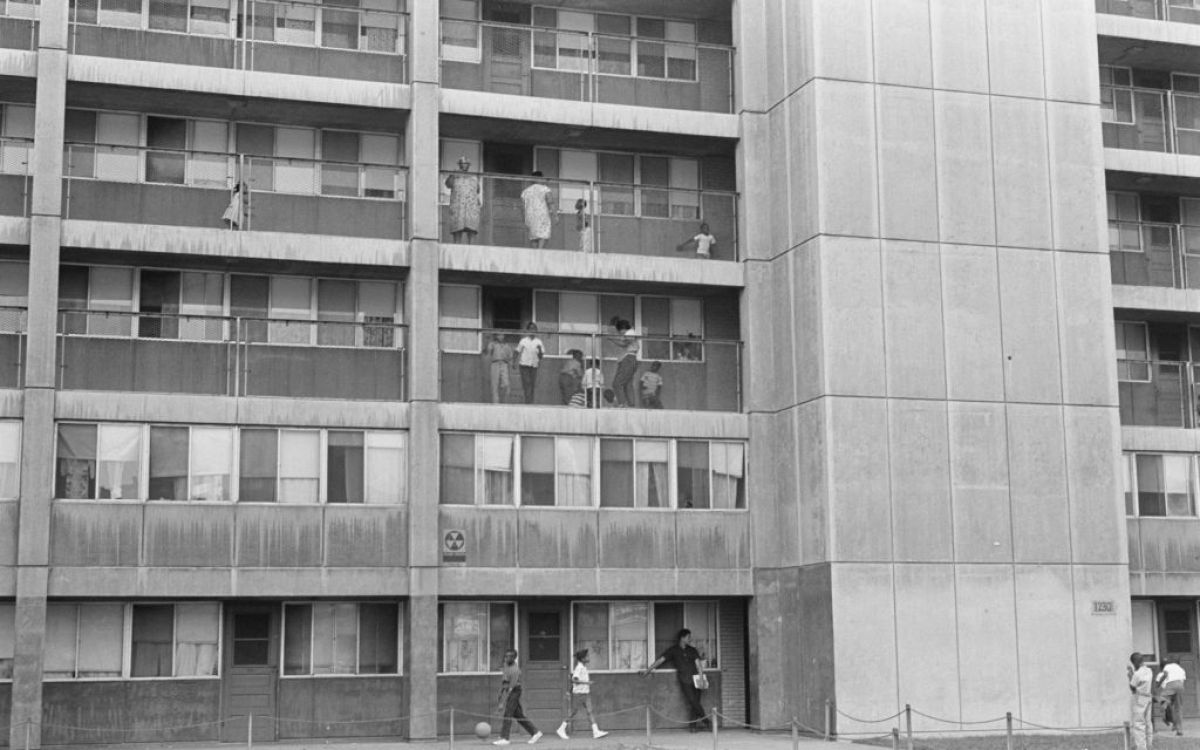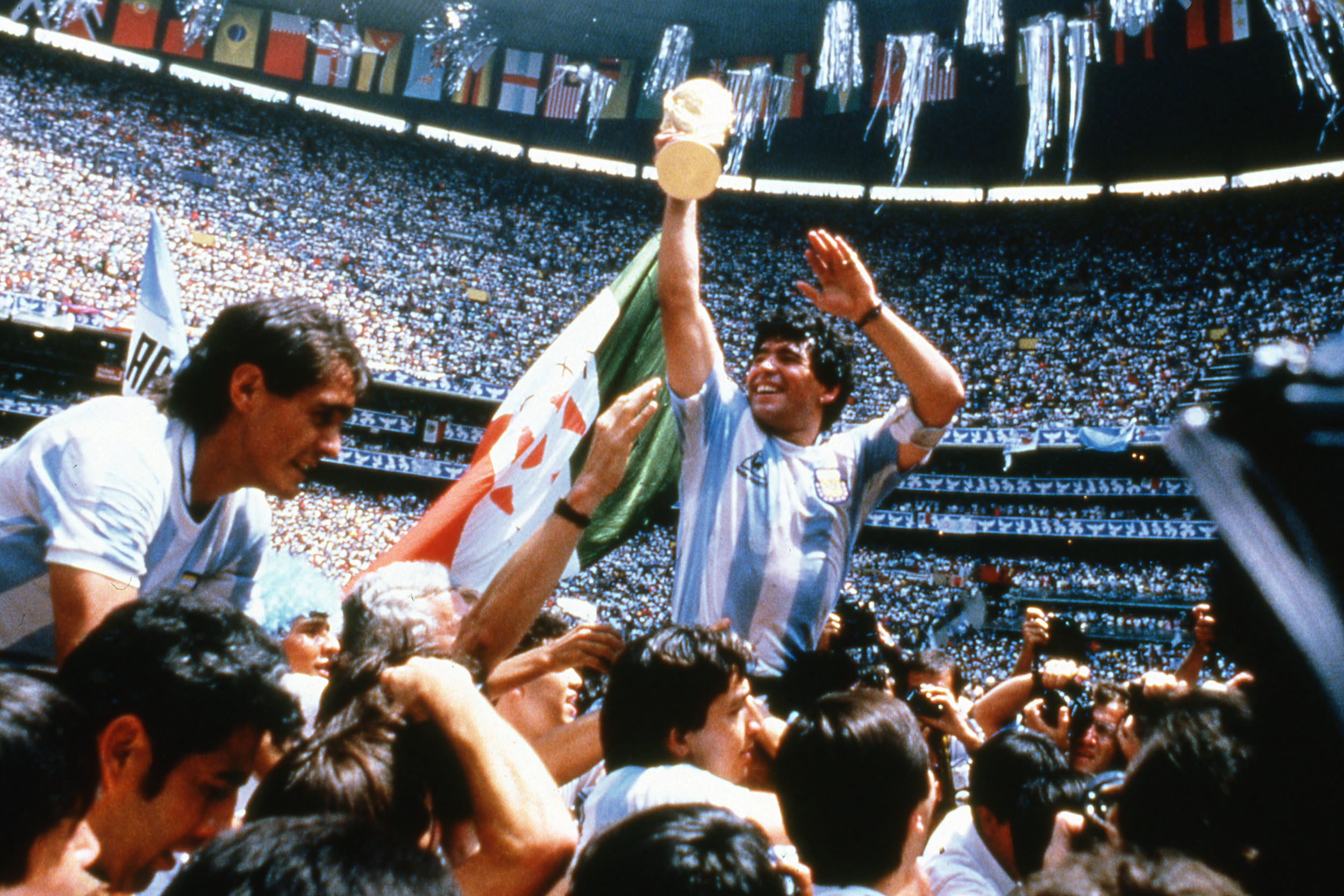
June 29, 1986, Diego Armando Maradona displays the World Soccer Cup won by his team after a 3-2 victory over West Germany at the Azteca Stadium in Mexico City.
Giuliano Bevilacqua/Abaca/Sipa USA (Sipa via AP Images)
Why Maradona matters
Mariano Siskind sees a classic hero in complex, flawed life of soccer legend
The recent death of soccer legend Diego Armando Maradona, who rose from the slums of Buenos Aires to stardom, made headlines all over the world. Argentina declared three days of national mourning, and there was a global outpouring of grief among fans of the world’s most popular sport. Maradona, who died of a heart attack at age 60 on Nov. 25, was also a controversial figure. Fans worshipped him for his extraordinary skills on the field, his charisma, and his championing of the poor. Critics pointed to his life of excess, including his drug addiction, philandering, paternity suits, his support of leftist leaders such as Fidel Castro and Hugo Chavez, and allegations of domestic abuse of a girlfriend. The Gazette spoke with Mariano Siskind, professor of romance languages and literatures and of comparative literature, to understand the social and cultural phenomenon behind Maradona, his larger-than-life persona, and his legacy.
Q&A
Mariano Siskind
GAZETTE: Why does Maradona, in life and death, stir such devotion and unconditional love?
SISKIND: I think that the closest comparison to the collective grief over Maradona’s passing in Argentinian history was the death of Eva Perón in 1952. Millions of people cried at Maradona’s public wake at the Government Palace in Buenos Aires. I personally cried three days straight. I was surprised by my own reaction. I wasn’t so surprised about the public display of sorrow, but when crying is at the center of the public sphere it has to be interrogated: What exactly are we crying about? What are we mourning with our deep sadness?
At an individual level, people cried to mourn the death of a public figure whom they loved deeply. But they were also mourning their own youth, their past, because Maradona’s presence in our lives is tied to very happy moments of our lives. Maradona’s death also has an important social and political meaning because when he was at his best in the World Cup of 1986, and Argentina was at the beginning of its democratic transition with Raúl Alfonsín as president, he was able to create, for brief moments, a sense of community, a community of people in awe of what Maradona was doing. It was not necessarily a nationalistic feeling, at least not for me, but the possibility of a being in common of sorts, something that is rare if not impossible in a place like Argentina, a country always in contradiction with itself.
The other meaningful thing about Maradona, particularly for people like me who are very, very secular and non-religious, is that when he was on the pitch, he created something that was similar to a secular divine experience, an experience of what Hegel calls the Absolute. For people like me, this only happens through art, but then again soccer is a performing art, at least when Maradona was on the pitch. For me, Maradona is Beethoven; John, Paul, George, and Ringo rehearsing at Abbey Road Studios to record the White Album; Picasso painting “Guernica”; he is Shakespeare, Cervantes, Joyce, Borges; or Miles Davis and Bill Evans playing together; and a little bit of “Antigone.” Watching Maradona was akin to an experience of transcendence.
“I think that the closest comparison to the collective grief over Maradona’s passing in Argentinian history was the death of Eva Perón in 1952.”
GAZETTE: How do you compare Maradona with Pelé, the Brazilian striker from the 1970s, and Lionel Messi, the best player in the world right now? Who is the greatest of all?
SISKIND: This is an endless debate among soccer fans all over the world. It’s very hard to establish an objective argument in favor of one or the other two. Pelé and Messi are absolutely incredible, in terms of skills and talents. I don’t think anybody else gets in the conversation. But both Pelé and Messi have played on teams with other amazing soccer players. When Pelé played for the Brazilian national team in the World Cup in 1970, arguably the best team in the history of all World Cups, he played with five or six of the best players of the world next to him. Messi, as much as I love Messi … his greatest accomplishments in Barcelona were surrounded by Xavi, Iniesta, Busquets and other incredible players. But Maradona in 1986 won the World Cup by himself. Argentina’s team had effective role players, but that’s it. In Mexico ’86, Maradona performed the most remarkable individual performance in the history of the World Cup. Many people said that whichever team Maradona played for in 1986 was going to win the World Cup. When he went to play in Napoli, Maradona led the team to their first-ever Italian championship. Back then, the teams from the north of Italy had the best players. Again, Maradona was pretty much alone in Napoli except when they won that first Scudetto. And he would go on to win another one as well as a European UEFA Cup. Napoli had never won either before, did not win again after Maradona left in 1991. He always played on teams which were rather mediocre.
But that alone doesn’t explain Maradona’s mythical figure. There are other elements: his charisma and his qualities as a leader combined with an aesthetic quality that that was superior to that of Pelé or Messi, who are incredible soccer players, but Maradona played a different sport, a form of art. Watching Maradona one experienced something akin to what Immanuel Kant defined as the sublime. The experience of the sublime destabilizes our subjectivity, and for a moment, we are undone; we lose ourselves. It is something that surpasses what is merely beautiful.
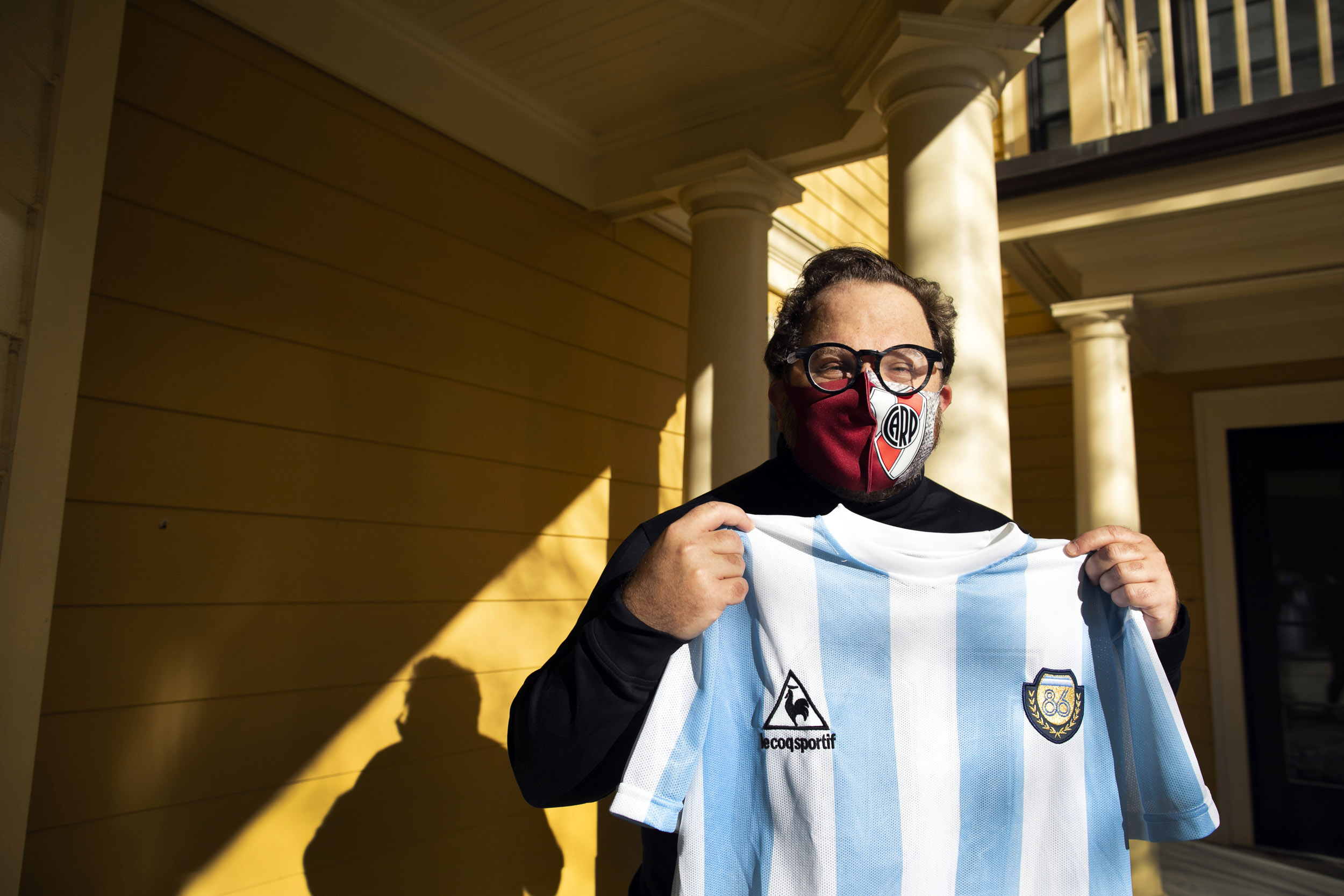
“[Diego Maradona] will be remembered as the greatest player of the most popular sport and cultural practice that exists in the world,” said Harvard Professor Mariano Siskind.
Stephanie Mitchell/Harvard Staff Writer
GAZETTE: Let’s talk about the World Cup in 1986, and the historic match between Argentina and England in the quarterfinals that cemented a large part of Maradona’s celebrity. In which ways did his performance, and his two goals, became crucial to his legend?
SISKIND: Maradona scored two goals. The first is known as the “Hand of God” because that’s how he explained it after he scored using his left hand, and the second is the “Goal of the Century.” The first goal established Maradona’s legacy as a mythical figure across the Third World and the global South. There are two interpretations of that goal that break along geopolitical lines: The typical U.S., British moralistic view said that was cheating, but across Latin America, Africa, and the Third World, they view it as a form of humiliating a former colonial power and the ultimate expression of cunning or shrewdness, which is central to a ludic conception of the game (and of life) that stands outside of the realm of morality.
The “Goal of the Century” came only a few minutes later and is one of those moments in which Maradona made possible the impossible with his godly mastery of the game. The amount of decisions he had to make during those 10 seconds showed a football IQ and skill beyond comprehension, a true genius at work. There is a universal reverence for what Maradona accomplished that day with those two goals, but the second was literally extraordinary, out of the ordinary; unique, impossible.
GAZETTE: You’re from Argentina, a soccer-crazy country. What did Maradona represent to most Argentinians?
SISKIND: Argentinians are a complicated bunch of people, and there is rarely agreement about anything. There was universal consensus, universal love for Maradona as a player at the height of his career. But especially since Maradona retired, he became more polemical and very political, and he wasn’t afraid of taking sides and expressing his political opinions. For some people, their admiration for Maradona became a conditional form of love: “Yes, he was a great player, but he was an addict,” or “He’s amazing, but he supports political regimes or political parties I disagree with.” I personally think that’s very shortsighted. You don’t choose who you love or who you cry over. You love who you love, and if you think you can choose not to love someone because of your disagreements with them, or because of their imperfections, you know nothing about love.
GAZETTE: Who were Maradona’s harshest critics? Who were his fiercest fans?
SISKIND: What has always been particularly moving is poor people’s unconditional love for Maradona. During these past few days of public mourning, I saw hundreds of interviews with people saying that when they didn’t have any money, when they were out of work, when they were hungry or without hope in their miserable lives, watching Maradona play was the only thing that made them happy. I honestly don’t understand how that doesn’t move anyone to tears or change their views about the social meaningfulness of soccer and of a figure like Maradona. He was revered in Argentina, in Napoli, across the Third World, and by those anywhere in the world for whom soccer is an important part of their lives. A lot of the criticism against Maradona has an elitist undertone, and it’s also very moralistic. I happen to think that moralism as a way of interpreting the world is absolutely uninteresting, and frankly, not very intelligent. It’s very reductive, not to mention hypocritical. There is an elitist view and a moralistic judgment at the basis of those forms of conditional love and blunt condemnations of Maradona.
Maradona was born in Villa Fiorito, a slum on the outskirts of the city of Buenos Aires. He had seven siblings; his father was a factory worker; and his mother stayed home with the children. They lived in a house where when it rained, it rained inside the house. He always told the story of how when he was a kid, his mom was never hungry, and how he realized later in life that his mom didn’t eat because there wasn’t enough food for everyone. What’s interesting about Maradona is that he never forgot or let anyone forget where he came from. He brought Villa Fiorito with him to the heights of the world, and even when he lived in mansions and had the most expensive cars and the most privileged life, he always reminded people of his humble origins. That’s one of the reasons why poor people in Argentina and in Napoli loved him, and there were some in the elite who never forgave Maradona’s defiant and plebeian quality throughout his entire life.
GAZETTE: Besides his addiction to cocaine, Maradona had many affairs with women and paternity suits. How do Maradona’s fans come to terms with his shortcomings?
SISKIND: I couldn’t care less about his addictions to all kinds of substances, but for the record, Maradona never took performance-enhancing drugs. However, I’m bothered by the reported cases of gender violence. I’m bothered by the fact that he had many sons and daughters that he only recognized late in his life. To answer your question about how one comes to terms with these aspects of his life, we don’t. Because there is no need. Maradona was the most imperfect of human gods. There’s no need to reconcile the contradiction that our love for him creates in us; you just live with that contradiction the same way you live with contradictions in your own life. You don’t come to terms with it. Morality and love don’t go together.
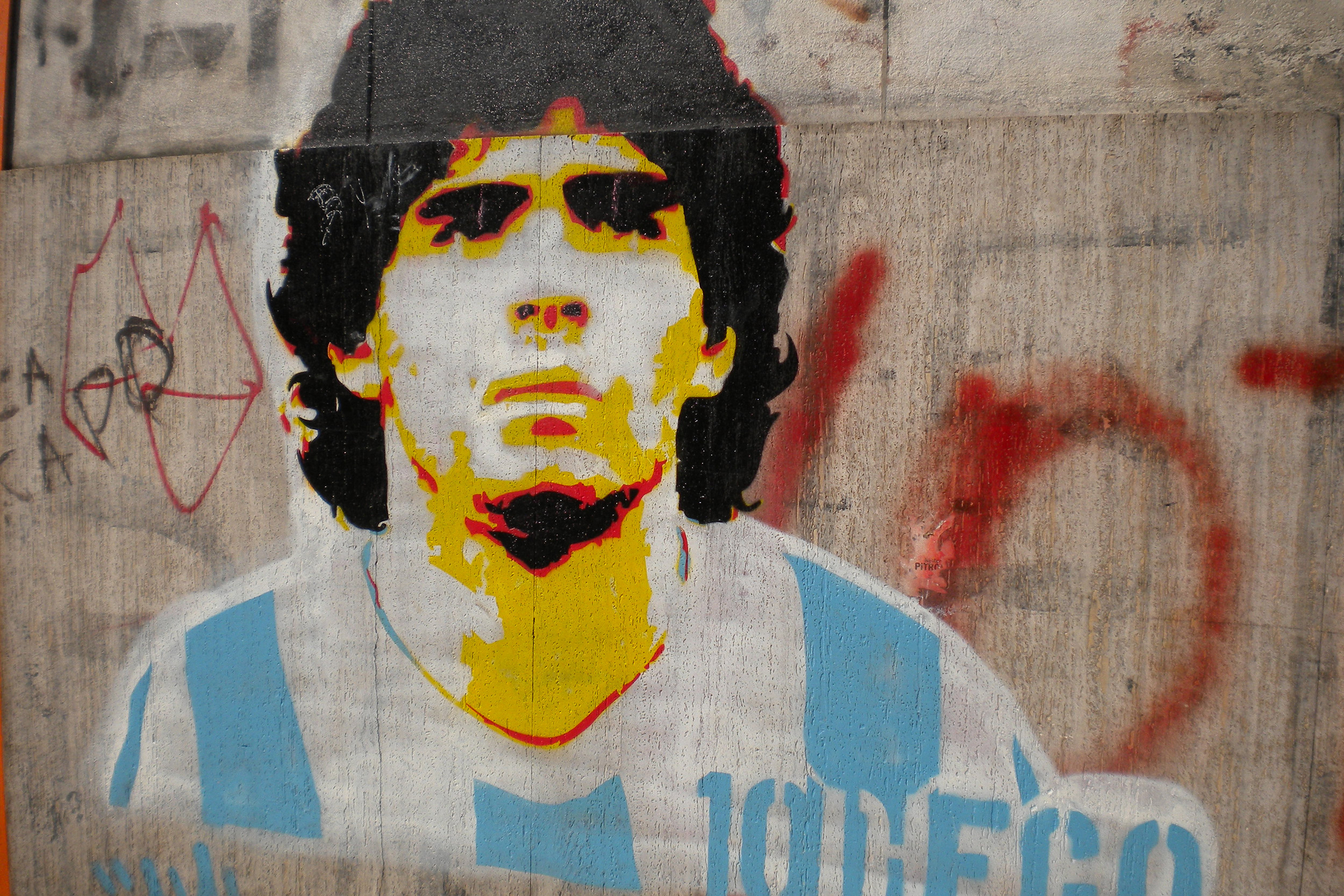
Graffiti of Diego Maradona.
Cadaverexquisito/Creative Common
GAZETTE: You have co-taught a humanities course about soccer, politics, and popular culture with Francesco Erspamer since 2012, and you teach an entire class on Maradona as the perfect example of the classic tragic hero. Can you explain?
SISKIND: Yes, I really wanted to include a class on Diego! For that class, I propose two social, historical, and cultural ways of approaching the figure of Maradona that shed light on why he’s such a meaningful figure. One is through Nietzsche’s “The Birth of Tragedy,” in particular the opposition and relation that Nietzsche develops around Apollo and Dionysus as the figures that represent the two forces that define humans in their relation to the world around them. On one hand there is Apollo, the god of poetry, light, well-being, social order, rational behavior, and of measured forms of freedom. In my mind, Pelé represents an Apollonian figure in the world of soccer. On the other hand there is Dionysus, the god of festivities, wine, dance, music, madness, sexual drive, and of unrestrained forms of freedom. For Dionysus, there’s no morality; there’s only desire and it’s a force of creative destruction. I propose that Maradona is the perfect embodiment of the Dionysian in us, and how important it is to make room in our lives, in the world, for the forms of unbounded freedom and desire he represents. Maradona and other Dionysian figures make it possible to imagine ourselves beyond the boundaries of social pieties, to imagine ourselves breaking free from structures we often experience as asphyxiating prisons.
I also argue that Maradona incarnates the figure of the classic hero through our reading of Aristotle’s “Poetics,” particularly the section on tragedy. Aristotle explains that the hero is a demigod, the son of a god or goddess and a human, and therefore imperfect, and that he experiences a reversal of fortune (peripeteia) brought about by his own fatal flaws (hamartia) or by excessive pride (hubris). The tragedy of the hero revolves around having everything to enjoy a prominent place in the world but not being able to avoid causing his own downfall. In the class we establish how Maradona becomes a hero between 1979 and 1990 and how through his flaws he causes his own demise in 1991, in 1994, and at so many points later in his life. Aristotle also said that the hero has a moment of redemption when he recognizes that his actions led to his fall, he calls it anagnorisis. In the narrative arch of Maradona’s life, there is a beautiful ceremony celebrating his career at Boca Juniors’ stadium in 2001 when he acknowledged his shortcomings, which is his moment of redemption. That day he crafted one of so many brilliant epigrams that are now part of the unconscious of Argentine popular culture: “I paid dearly for my mistakes, but the ball will never be stained.”
These two perspectives should help us understand why audiences around the world are fascinated with Maradona. Aristotle said that tragedy has a social and political function, and he explained it through the notion of catharsis: Audiences purge their social and political detrimental emotions by witnessing the tragic hero’s downfall. Those two readings help us understand Maradona’s historical importance in non-moralistic ways.
GAZETTE: You invited Maradona to come to Harvard in 2017…
SISKIND: I wanted him to come to Harvard because it would have been extraordinary. It would have been the highlight of my time at Harvard [laughs]. Jokes aside, Maradona was an incredibly intelligent man, and one of the signs of his intelligence was that he was capable of very insightful forms of self-criticism and was a very acute observer of power relations in soccer and in society. He was also extremely funny.
I knew that Maradona hadn’t been given a visa since the World Cup of 1994, which was held in the U.S. He was sent back home after testing positive for drugs. I was hoping that the official invitation on Harvard letterhead would sway the opinion of immigration officers in charge, but I overestimated the cachet of the Harvard name [laughs]. For me, the fact that the U.S. denied him a visa over and over again, together with the obituaries published by the most important national newspapers the day after Maradona’s death, shows how moralism and provincialism are still prevalent in American culture. It never ceases to amaze me how even the most encumbered cultural elites in the U.S. exhibit a deep lack of interest and understanding for any social, cultural, and historical phenomena happening outside the U.S., outside of the idea of “American interest in the world.”
GAZETTE: Now that Maradona is gone, what will his legacy be? How do you hope people will remember him?
SISKIND: He will be remembered as the greatest player of the most popular sport and cultural practice that exists in the world. I hope that with Maradona, like with other great historical figures, the passing of time will help people gain perspective on his very human flaws and that he will be recognized as the meaningful historical figure he was. The global commotion that we’ve seen over the last few days after his death adds to this legend and his place in history. I think that younger people who heard about him but did not see him play will have a newfound interest in him. That’s my hope.
This interview has been edited for length and clarity.
